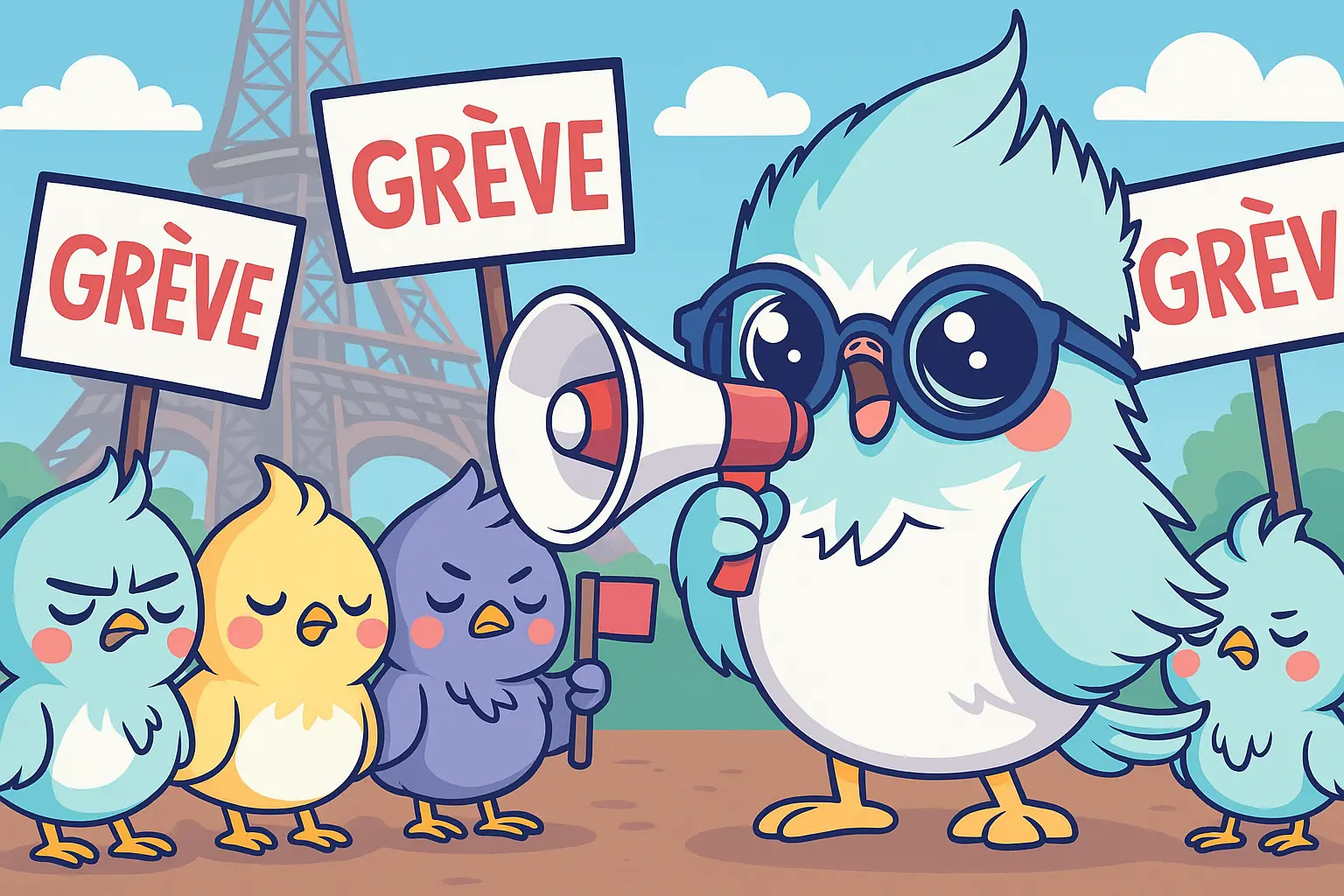Rail strikes are a regular occurrence in France, particularly affecting SNCF services. These strikes can disrupt travel plans significantly, with trains cancelled, delayed, or running on reduced schedules. Understanding key French phrases will help you navigate announcements, ask for information, and make alternative arrangements when strikes affect your journey.
Essential Vocabulary for Rail Strike Situations
These are the fundamental terms you’ll encounter during rail strikes in France. Knowing these French words will help you understand announcements and communicate with station staff about strike-related disruptions.
Common Announcements During Rail Strikes
These are typical phrases you’ll hear over station loudspeakers during strikes. Understanding these announcements will help you quickly assess your travel situation and make informed decisions.
At the Station French Dialogues
Dialogue 1: Asking for Information
Traveler:
Translation: Excuse me, do you know if the 3 PM train to Nice is running today?
Agent:
Translation: No, sorry, it’s cancelled due to the strike. The next train is at 6:30 PM.
Traveler:
** Translation:** Is there a replacement bus?
Agent:
Translation: Yes, there are buses every two hours. The information desk can give you details.
Dialogue 2: Making Alternative Plans
Traveler:
Translation: Hello, I absolutely must get to Bordeaux tonight. What are my options?
Agent:
Translation: The direct TGV is cancelled, but you can take the 4 PM train with a change in Tours.
Traveler:
Translation: How long does the journey take with the connection?
Agent:
Translation: About 4 hours instead of the usual 2 hours 15 minutes. Would you like me to book it for you?
Tips for Travelers During a French Rail Strike
Check Strike Information in Advance:
- Visit the SNCF Connect website or app before traveling
- Look for “prévisions de trafic” (traffic forecasts)
- Download the SNCF Connect app for real-time updates
At the Station:
- Arrive early to assess the situation
- Look for information boards displaying “trains maintenus” (trains running)
- Ask station staff: “Où puis-je trouver les informations sur la grève ?” (Where can I find strike information?)
Communication Strategies:
- Speak slowly and clearly
- Use simple present tense when possible
- Write down important station names and times
- Have your ticket and destination information ready
Alternative Transportation:
- Ask about “cars de substitution” (substitute buses)
- Consider carpooling: “Y a-t-il du covoiturage ?” (Is there carpooling?)
- Check for “liaison routière” (road connection) services
Frequently Asked Questions
How far in advance are French rail strikes usually announced?
Most rail strikes are announced 2–5 days in advance, but last-minute changes can still occur.
Will my train ticket be refunded if my service is cancelled due to a strike?
Yes. SNCF offers full refunds or free exchanges for cancelled strike-affected trains.
Are substitute buses free during a rail strike?
Yes. Replacement buses provided by SNCF during strikes are included in your train ticket price.
